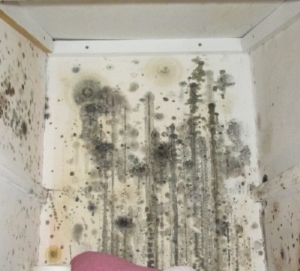June is recognized as the month for National Home Safety. Participate with us by committing to being prepared, informed, and living well.
A popular part of living well in June is enjoying the great weather! Breaking out the grill is one of my favorite ways to celebrate the coming of summer. Remember before kicking off a great barbecue:
- Propane and charcoal grills are for outdoor use only!
- Avoid grilling close to your house, railings, or overhanging branches. Smoke damage can be quite an extensive project to tackle. Read more about smoke damage clean up.
- Maintain a clean grill by proper heating, scrubbing, and cleaning the grease tray often.
- Make sure to never leave the grill unattended while in use, and don’t forget to shut the propane off when you’re done.
- To check for leaks in the tank hose, use a light soap and water mix. If you see bubbles after applying the solution to the hose, don’t light that grill! Have it serviced first.
- Always let coals cool completely before disposing of them in a metal container.
- Of course, accidents do happen, so have a plan in place for prompt response if you have an emergency. If you are local on Cape Cod, read about Whalen Restoration’s emergency response services.
This June, work on preventing household injuries by addressing factors in and around your home.
- As included in most of our safety tips, have an emergency safety plan. Keep it simple so that all ages of your home will know what to do, but include enough to cover most of the common disasters your area may encounter in a year.
- Keep an emergency kit handy in the event of a natural disaster and/or loss of power. Make sure you have the essentials to last a few days including water, first aid, flashlights with extra batteries, and nonperishable food. More in depth details of what you should have and how to assemble a kit can be found at http://www.ready.gov/build-a-kit
- Replace the batteries in your smoke alarms yearly, and test them often. Make sure there is one on every floor of your home and near fire hazards.
- Be sure to have emergency telephone numbers handy for accidents. Poison control and other emergency contact numbers are great to have posted on the refrigerator for quick access.
- Make sure any toxic products and medications are stored in childproof areas.
With those safety and prevention tips in mind, another very large part of home safety is making time to care for you. Nothing should interfere with having a balanced diet and good exercise habits. That doesn’t mean you can’t indulge in strawberry short cake at the cookout or take a day’s rest from the gym, but it does mean that you should be regularly eating clean, getting sufficient exercise, and regular sleep. Luckily, the urgency to adapt these great habits is becoming one of today’s most popular topics, creating an amazing variety of options to suit everyone’s needs. By caring for yourself you’ll be preventing household injury by keeping a clear mind and stronger body.
Pledge to honor this National Home Safety month and reap the benefits all year long. I wish you all a safe, happy, and healthy Summer.

